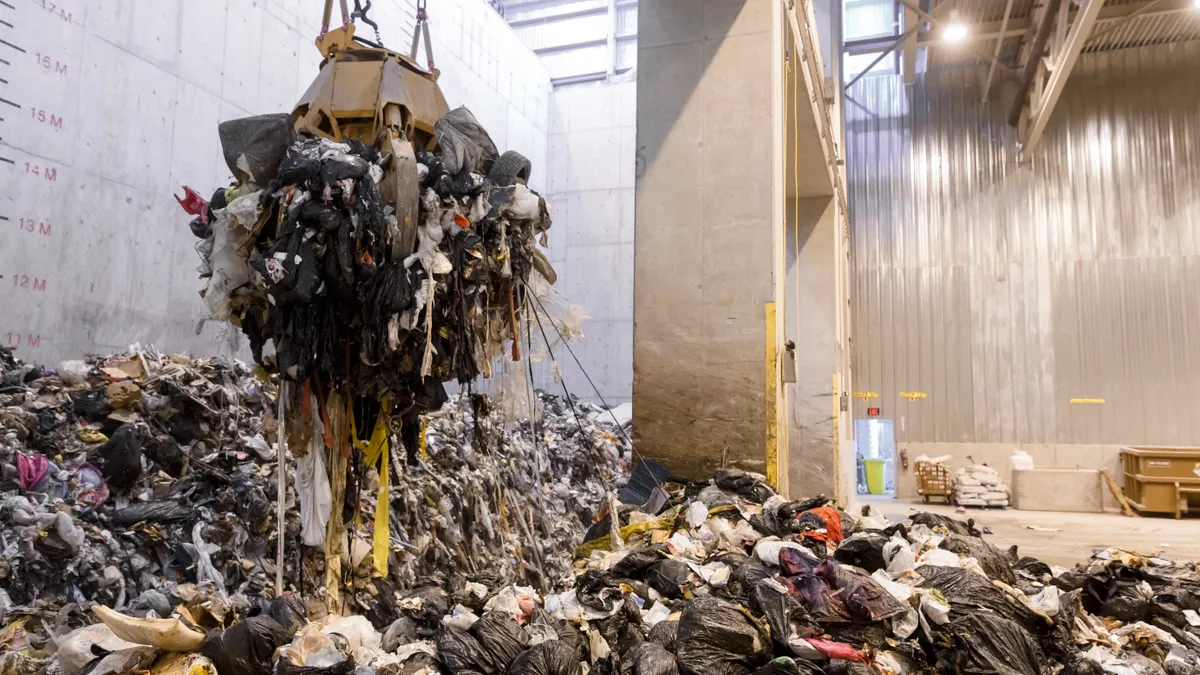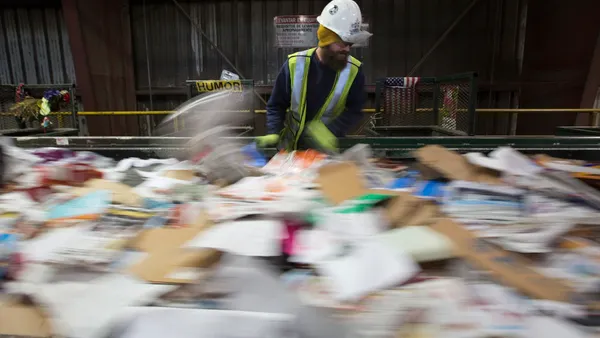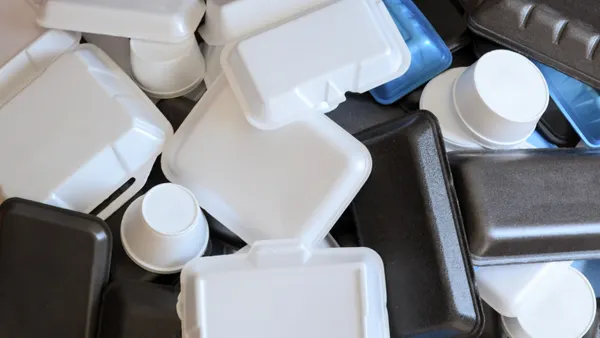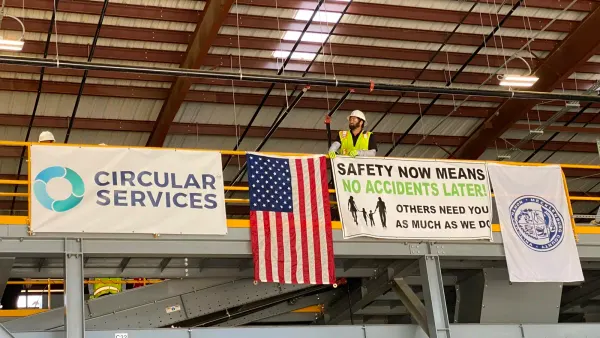Dive Brief:
- Pasco County, Florida is moving forward with negotiations to design and construct the expansion of an incinerator currently operated by Covanta, also the only company to respond to an October 2019 request for information (RFI). County commissioners voted unanimously on April 21 to advance discussions, as reported by the Tampa Bay Times, for a contract that would see Covanta operating the plant from 2025 through 2034.
- According to Covanta's RFI response, the schedule for the new project would be around 36 months, not including time for permitting. The expansion would increase facility capacity from 950 tons per day to 1,500 tons. The county generates 1,100 tons of waste on a daily basis, per February 2020 numbers, with some currently going to landfill.
- County commissioners argued the expansion needs to come hand-in-hand with improved recycling efforts to justify its cost. The project's $525 million maximum price tag includes $200 million for design and construction beginning in 2022 and scheduled for completion in 2025, and $325 million for subsequent operations.
Dive Insight:
Covanta has been upbeat about future U.S. opportunities in recent years. While growth has largely been focused in other countries, like the U.K., CEO Steve Jones expressed optimism about new U.S. capacity during the company's Q4 earnings call in February.
Marco Castaldi, an associate professor with the City University of New York and associate director for the Earth Engineering Center, told Waste Dive the expansion was "notable," but said it fell short of the excitement an entirely new mass burn waste-to-energy (WTE) project might generate.
"It is a great opportunity to remind everyone about the waste hierarchy and that an underutilized solution, WTE, is still viable and others are turning to use it," Castaldi said.
The expansion comes during a slower period for WTE expansion in the United States. Ted Michaels, president of the pro-WTE Energy Recovery Council, told Waste Dive that expansions of existing facilities have seen a lull in recent years, after an uptick between 2007 and 2012. He argued the decision to expand during a time of economic uncertainty due to the new coronavirus underscores the value WTE has for some communities.
"It wouldn't surprise me if we saw more [expansions] in the communities where it works and where they are running out of capacity," he said.
One of the most recent expansions was a $672 million project in Florida's Palm Beach County, which Covanta now operates. The company has undertaken several plant expansions of its own in the last decade, including facilities in Florida and Hawaii, as well as a greenfield project in Ontario, Canada. Covanta also designed and built the original Pasco County facility, which began operations in 1991.
John Power, Pasco County's solid waste director, said during the April 21 meeting that 34 companies downloaded the bid package but only Covanta pursued the project.
"[This is] consistent with what we've seen in the solid waste marketplace," Power said, noting Covanta is the only company with "sufficient capitalization and experience" to oversee the project.
Commissioner Jack Mariano highlighted the project's price tag but ultimately voted in favor of the expansion. "One of the big problems where [sic] WTE hasn't taken off in this country is that we're not able to get full returns on the energy we produce," he said.
Along with other colleagues, Mariano argued in favor of federal and state help with such local-level projects, suggesting Covanta and municipalities should push for changes in legislation "so we can make more money on these plants." He did not elaborate on what such action from lawmakers might ultimately look like, but Commissioner Kathryn Starkey seconded his comments.
Mariano also called for improved recycling volumes. "I know if we burn too much plastic in there, that can drive up the heat [and increase costs]," he said.
Michael Carballa, the county's assistant administrator for public infrastructure, similarly pointed to recycling as an important goal for the area. Pasco County has moved to twice weekly recycling, he said, which has increased participation and diverted some plastics from the waste stream.
Mariano suggested recycling and WTE together could prove economically sound for the county. "I think there's an opportunity to look at," he said. "Let's go try to divert even more of these plastics that are [coming in]... it'll help us with the return burn rate."
Even as the project moves forward, it is unclear how the COVID-19 pandemic might ultimately impact construction timing. Covanta withdrew its 2020 guidance earlier this month, and has taken steps to save costs, but appears to be moving forward with plans for facility construction in different areas.










